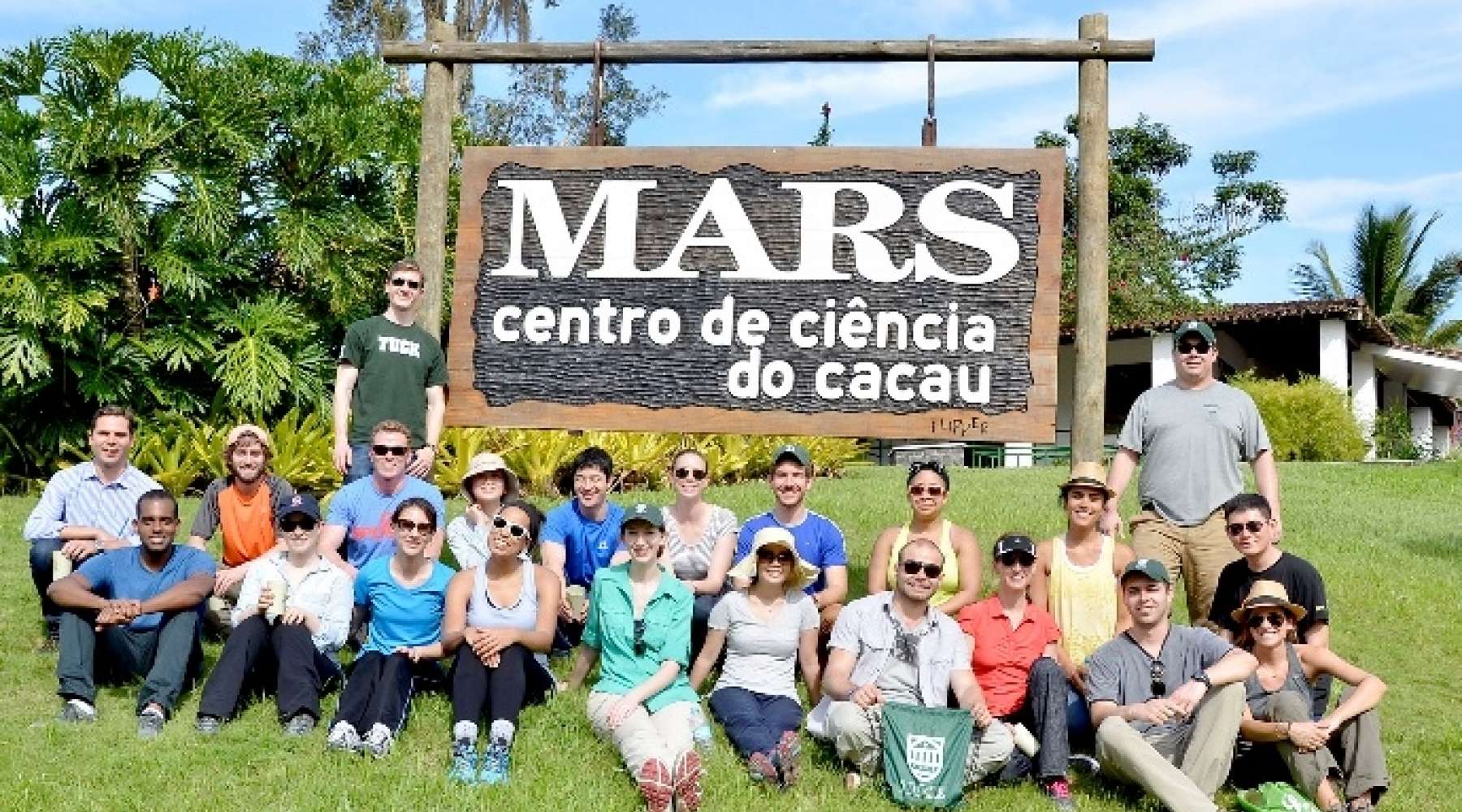
By Erica Johnston T'15
This past March I spent two weeks traveling throughout Brazil with 20 classmates and Tuck Professor Leslie Robinson on a Tuck Global Insight Expedition. We enjoyed relaxing on beautiful beaches, taking in the view from picturesque mountaintops, trying out the local cuisine, getting to know each other better, and attempting to master samba dancing (that one is still a work in progress for most of us!). Although we took great advantage of our limited free time to take in Brazilian culture, our schedule was jam packed with opportunities to learn about Brazil’s unique business environment through visits to a diverse group of companies (Itaú, Pao de Acucar, Embraer, and Petrobras, among others), discussions with local Tuck alumni, and a lecture from one of Brazil’s most prominent economists.
With each business visit we explored the concept of shared value, which we “defined as policies and operating practices that enhance the competitiveness of a company while simultaneously advancing the economic and social conditions in the communities in which it operates." 1
For me, this concept was illuminated by our visit to the Mars Center of Cocoa Science. Mars, well known for its chocolate candies like M&Ms and Twix, is facing a worldwide shortage of cacao, the key ingredient in many of its best-selling products. In fact, the International Cocoa Organization expects demand will exceed supply for the next five years. 2
Seeing the writing on the wall, Mars created the Mars Center for Cocoa Science (MCCS) in Brazil to develop productive and disease-resistant strains of cacao trees while also working with local small-scale farmers to teach them more effective production techniques. By working with farmers to increase their productivity, Mars is reducing farmer turnover as many have switched to more “profitable” crops due to cacao diseases and lack of knowledge of efficient crop layouts. Mars’ work focuses on the economic health of its farmers.
We spent three days at MCCS in Ilhéus exploring all of their activities. We grafted tree limbs, cross-pollinated blooms identified diseased trees, harvested cacao beans, visited test farms, observed the laboratory activities, planted trees and might have done more than a little taste-testing. I think we all walked away with a much better appreciation for all of the work that goes into making chocolate. Never again will I look at an M&M the same way.
Much of what Mars is accomplishing in Brazil is not proprietary and allows competitors, such as Nestle, to free-ride off its advancements. This left many of us to question, why does Mars invest so heavily in these activities if their outcomes benefit their competition as much as themselves? Mars recognizes that their strategic future is dependent on both the health of the cacao crops and the long-term success of the many small-scale farmers from whom they source cacao. Although Mars is spending a lot upfront that will not directly translate to the bottom line in the near-term, they recognize that the Center’s efforts to increase Brazilian farmers’ long-term productivity will ensure Mars has a sustainable cacao source for years to come.
Personally, the Mars visit helped me realize that a company’s strategic and social initiatives don’t have to be mutually exclusive.
1. Porter, Michael E. and Kramer, Mark R. (February 2011). Creating Shared Value. Harvard Business Review.
2. Wexler, Alexandra. (February 11, 2014). World's Sweet Tooth Heats Up Cocoa. Wall Street Journal.